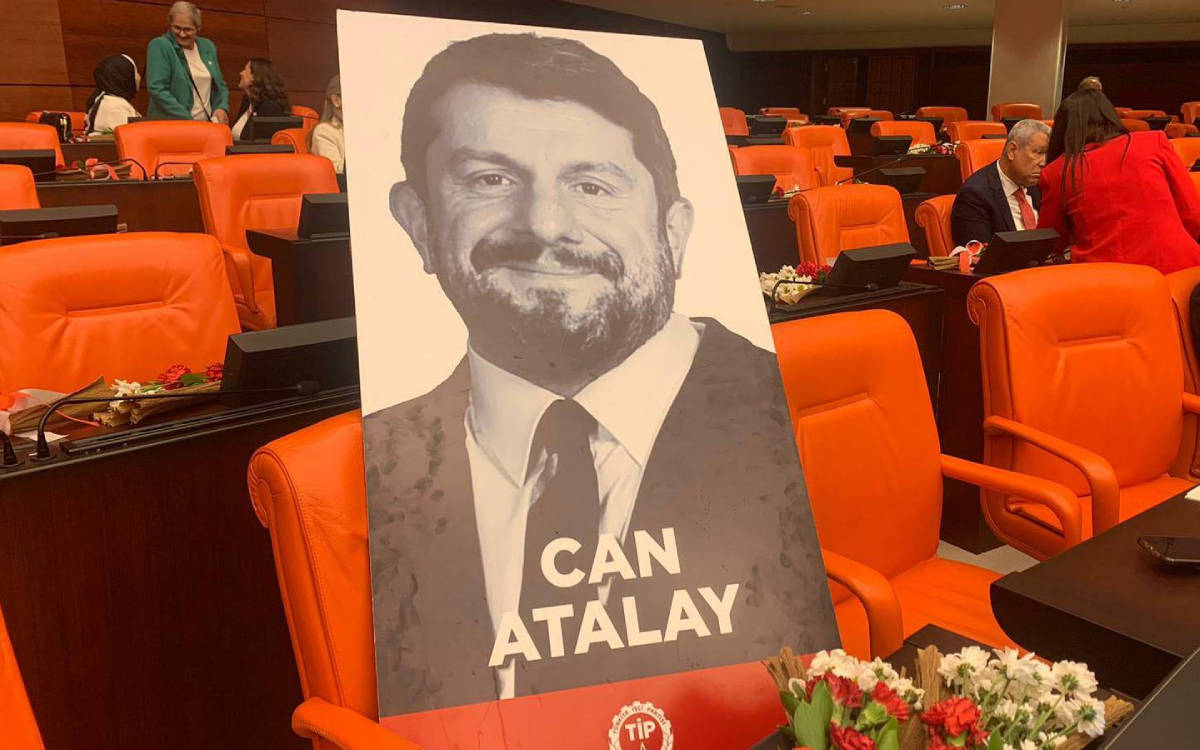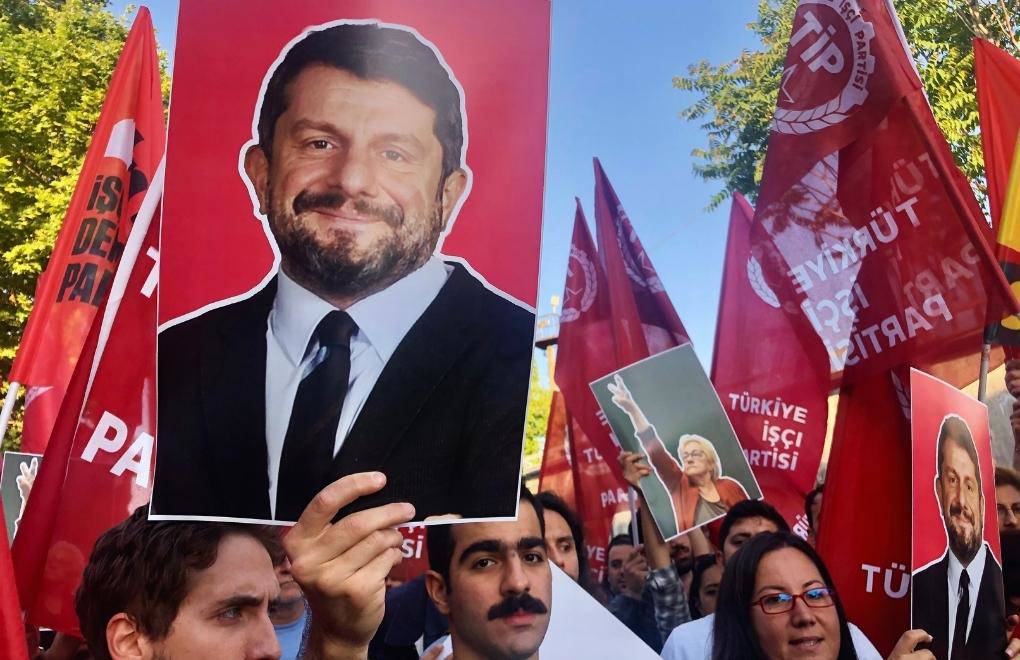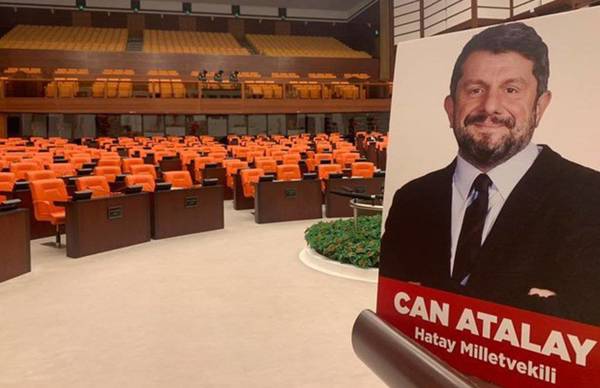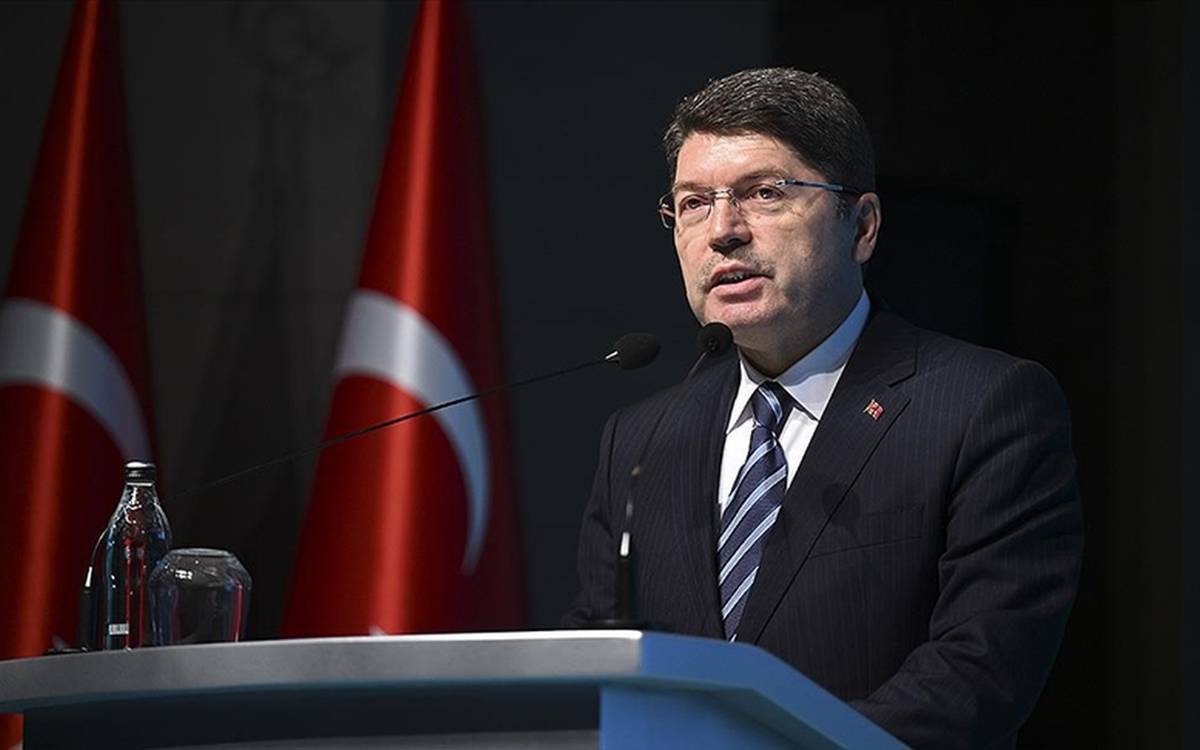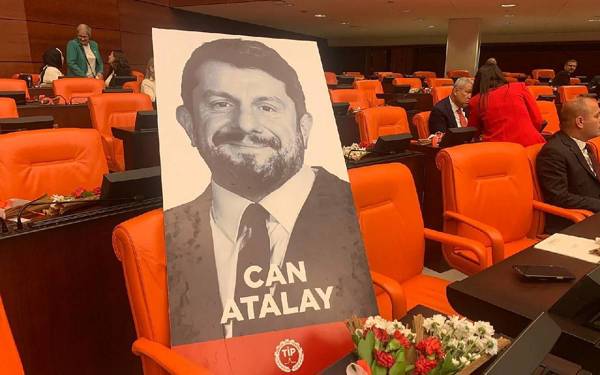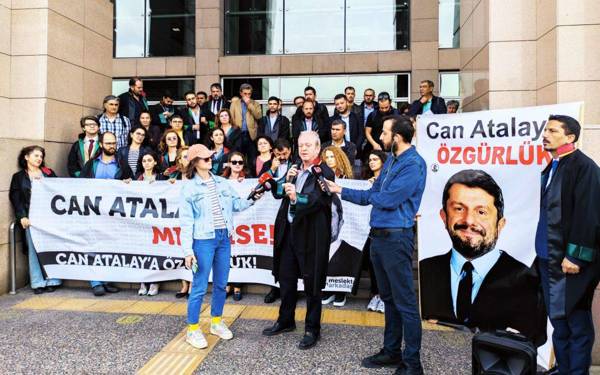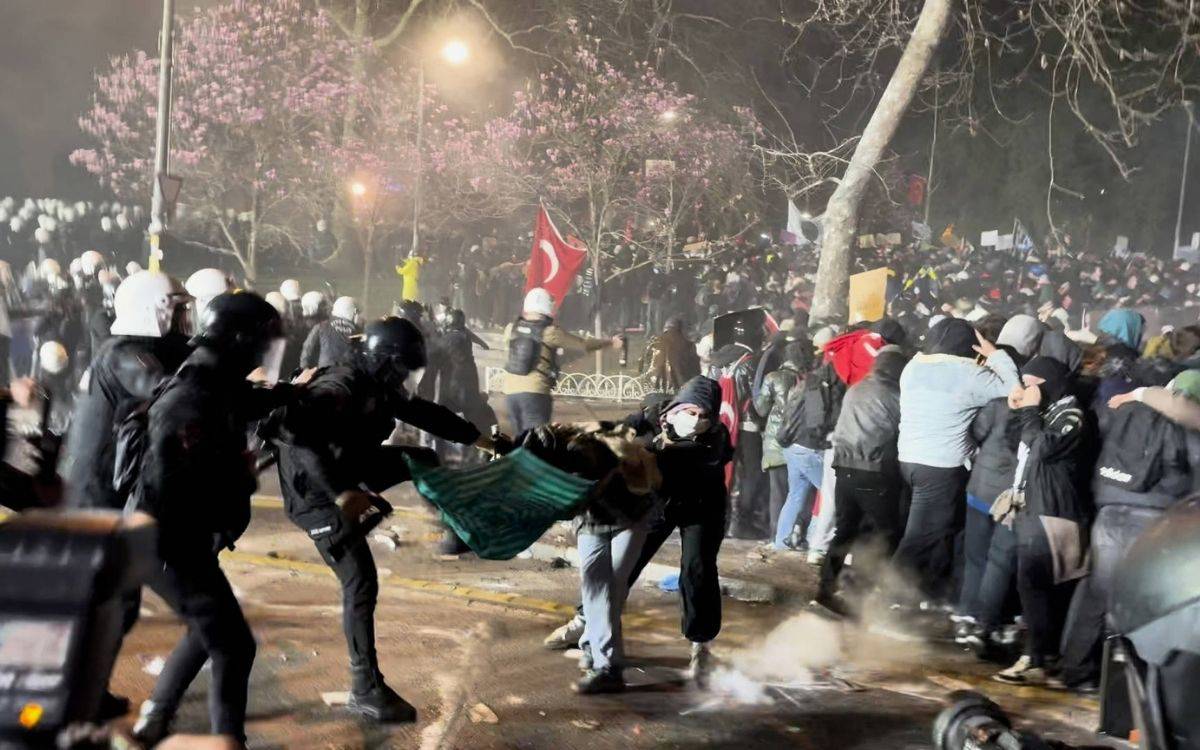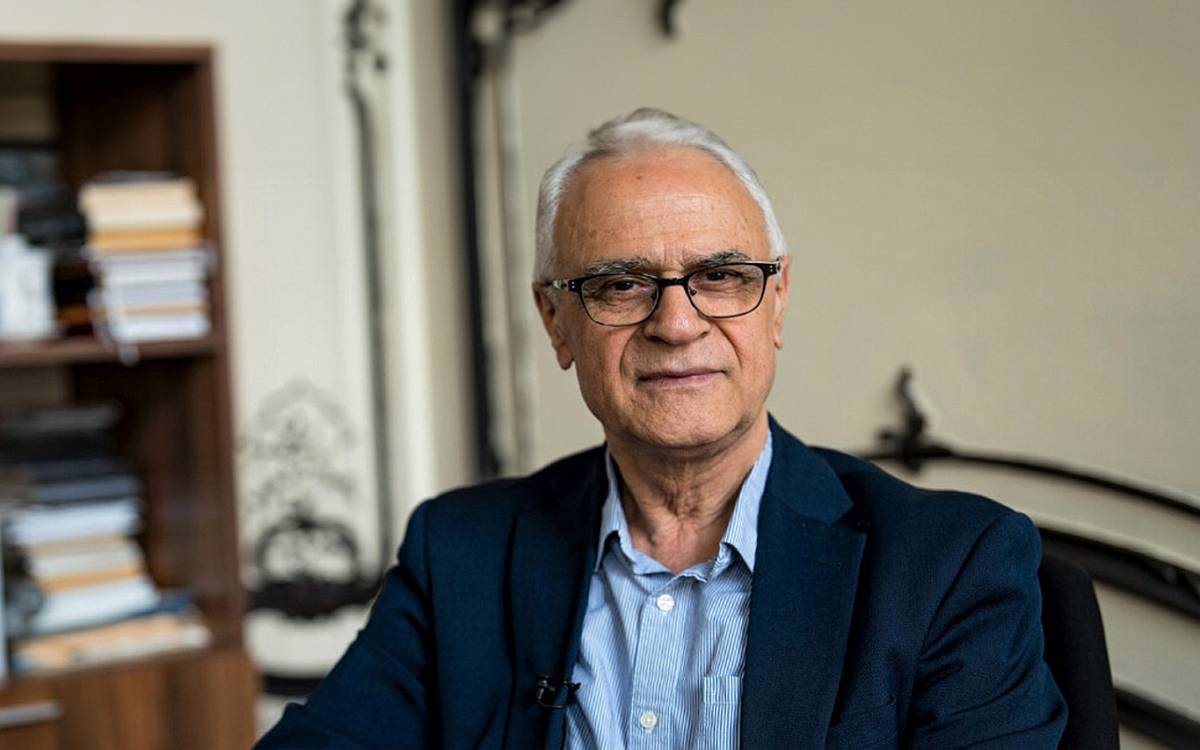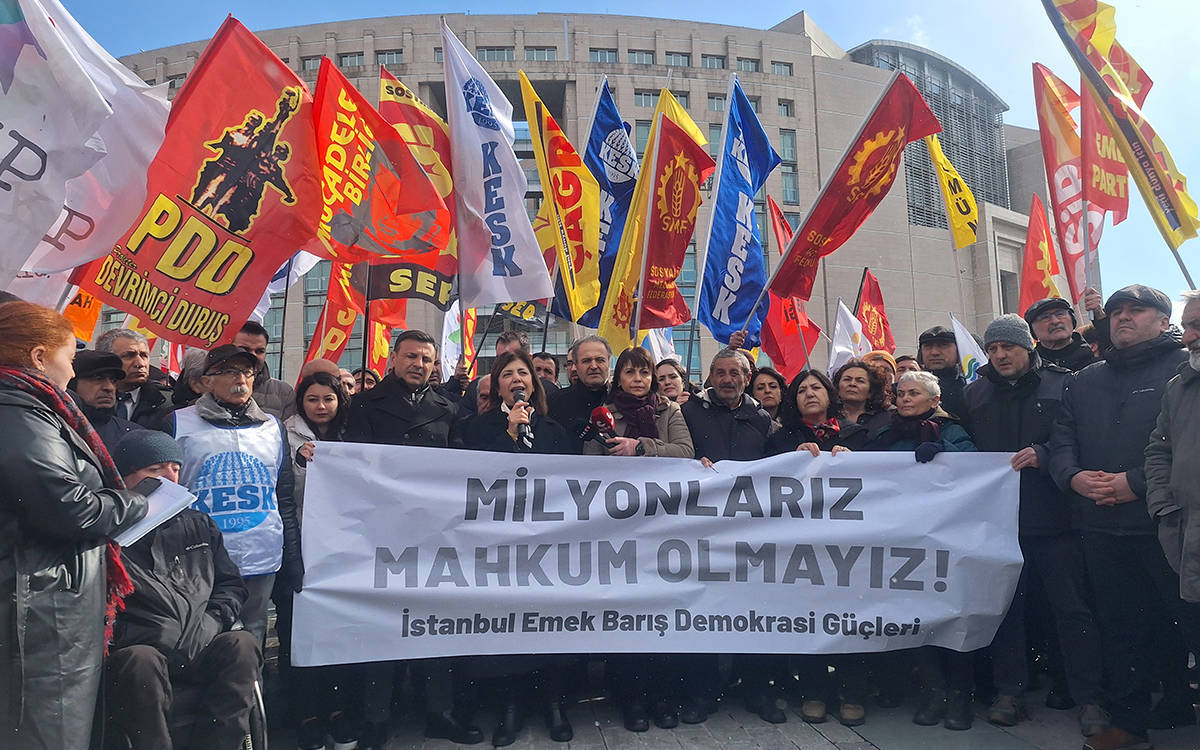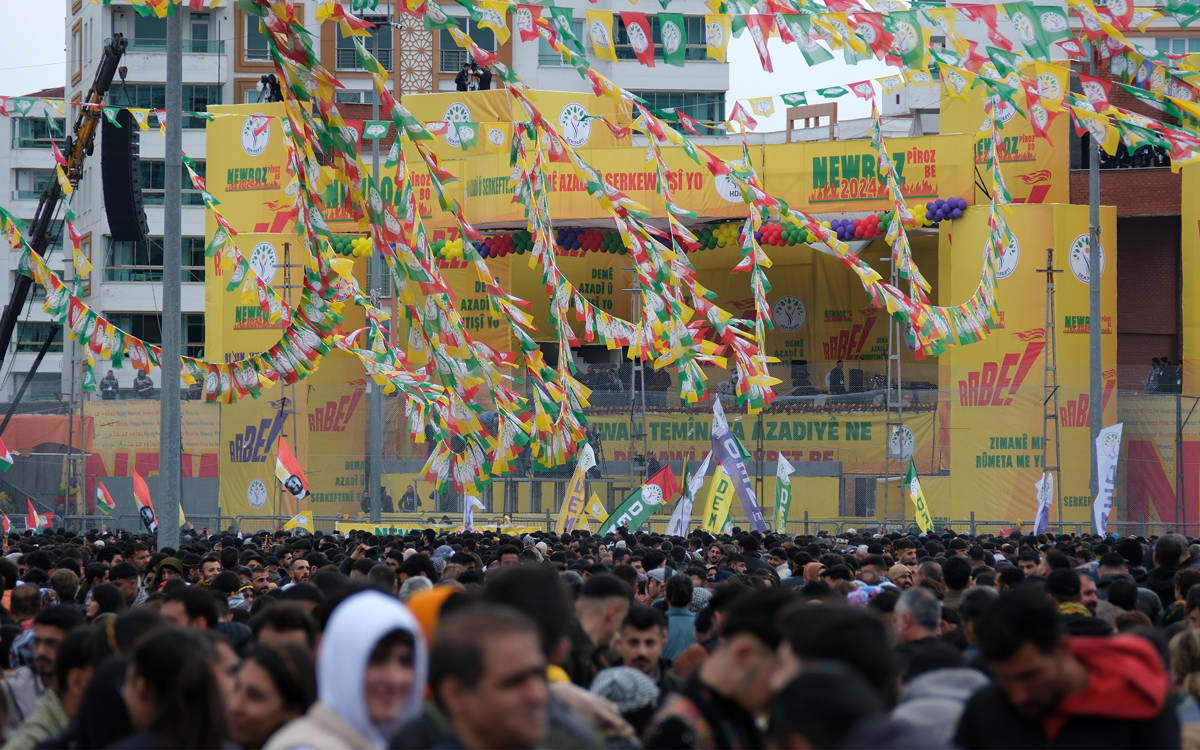The Court of Cassation Chief Public Prosecutor's Office has submitted its opinion to the Court of Cassation 3rd Criminal Division, to which the file of Workers' Party of Turkey (TİP) Hatay Deputy Can Atalay was sent.
The opinion includes the "violation of rights" decision of the Constitutional Court's General Assembly on Atalay, issued on October 25.
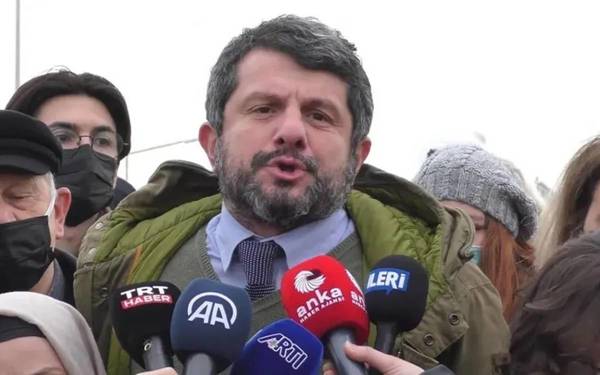
Constitutional Court finds violation in imprisoned MP Can Atalay’s case
In the six-page opinion of the Chief Public Prosecutor's Office, no view was expressed in favor of Atalay's release. However, it was stated that "a member of parliament who has committed a crime within the scope of Article 312 of the Turkish Penal Code (attempting to abolish the Republic of Turkey or prevent it from performing its duties) and was prosecuted for this offense before the election will not benefit from legislative immunity as prescribed in Article 83 of the Constitution."
The opinion also indicated that the authority to implement the Constitutional Court's "immediate release" decision is at the discretion of the Court of Cassation 3rd Penal Chamber.
The opinion, signed by Deputy Chief Prosecutors Zafer Şahin and Fatma Özer, discussed the "violation decision" of the Constitutional Court and stated, "If a matter falls within the scope of legislative, executive, judicial, and administrative jurisdiction within the framework of constitutional provisions, the Constitutional Court cannot invalidate the decisions of these authorities that are not contrary to the Constitution. Because in accordance with the principle of separation of powers, the powers and limits of the legislative, executive, and judicial branches are specified in the Constitution. No authority, including the constitutional judiciary, can prevent them from exercising their powers in matters falling within their jurisdiction."
The opinion of the Chief Prosecutor's Office included the following statements:
The fact that crimes falling within the scope of Article 312 of the Turkish Penal Code and the actions that resulted in conviction do not fall under the constitutional provision of Article 14 as specified in the Constitution is a conscious choice of the legislator. It is not possible to think that the crimes and actions that led to the conviction of the defendant, which are related to the security of the state, do not fall within the scope of the article.
As a result of the decision of the Court of Cassation 3rd Criminal Division on September 28, 2023, the decision to approve the judgment against Can Atalay has become final and enforceable. The defendant is in a convicted status after the approval decision, and the Higher Division has sent its decision to the Turkish Grand National Assembly. At this stage, whether the release request will be accepted or rejected is a matter for the Higher Division.
“The Constitutional Court will be effectively closed”
Commenting on the Chief Prosecutor's opinion to bianet, Can Atalay's lawyer, Deniz Özen, said:
"The Court of Cassation Chief Public Prosecutor's Office is engaging in a meaningless debate. The opinion discusses Articles 83 and 14 of the Constitution. The Constitutional Court has already had these discussions and made its decision. The Court of Cassation Chief Public Prosecutor's Office cannot debate the decision of the Constitutional Court. The decision of the Constitutional Court is there; will they implement it or not? Are they going to ignore Article 153 of the Constitution? Constitutional Court decisions are not advisory decisions. In accordance with Article 153 of the Constitution, they are final and binding. If the Court of Cassation 3rd Criminal Division makes a decision based on the opinion, this will effectively close the Constitutional Court."
Background
Can Atalay is a lawyer and a politician who was elected as a member of parliament from Hatay province in the 2023 general elections. He ran as a candidate of the Workers' Party of Turkey (TİP).
However, Atalay has been in prison since April 2022, when he was sentenced to 18 years for his alleged involvement in the 2013 Gezi Park protests. He was convicted of “aiding the attempt to overthrow the government.”
Despite his election as an MP, which grants him parliamentary immunity, Atalay has not been released from prison. The lower court that sentenced him refused to acknowledge his immunity and sent his file to the Court of Cassation for review.
The Court of Cassation upheld his conviction and rejected his appeal for release, arguing that his crime falls under the scope of Article 14 of the Constitution, which excludes certain offenses from the protection of basic rights and freedoms.
Atalay's lawyers then applied to the Constitutional Court, the highest judicial authority in Turkey, claiming that his rights to be elected and to personal liberty and security were violated. The court ruled in favor of Atalay, finding that his rights were indeed infringed and ordering his release. The court also awarded him 50,000 Turkish liras in compensation.
However, the lower court once again defied the Constitutional Court’s decision and refused to free Atalay, sending his file back to the Court of Cassation. (RT/VK)






